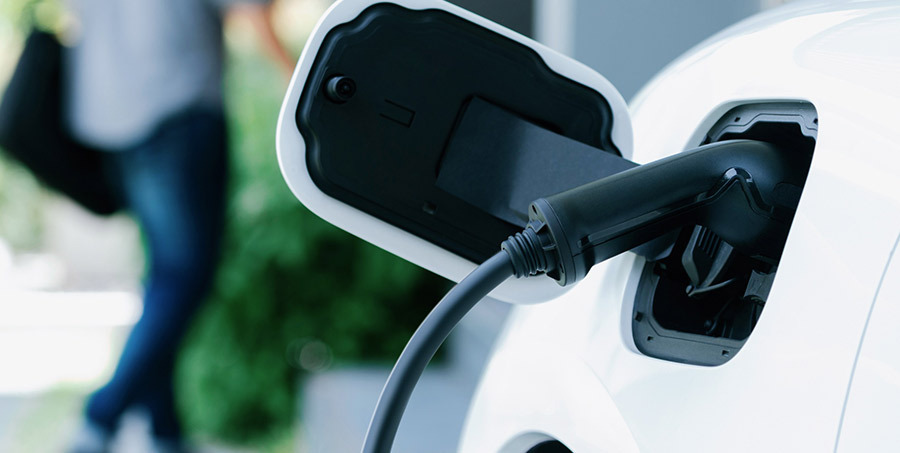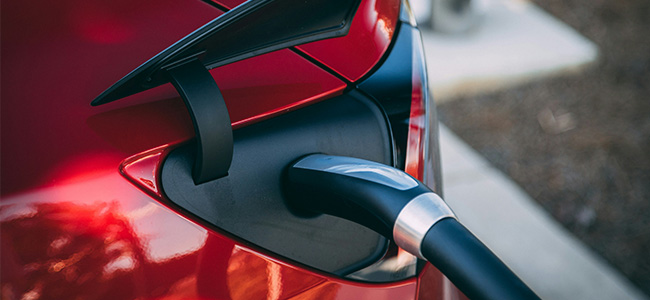In the electrifying era of green mobility, electric vehicles (EVs) have charged into the forefront of automotive innovation, offering a cleaner, more sustainable future on the roads. As the EV revolution accelerates, the spotlight turns to one crucial piece of the puzzle for every EV owner: the home EV charger. It’s the unsung hero, ensuring your electric steed is always ready to gallop. But, as many new EV owners discover, the path to installing a home charger can be strewn with various costs and considerations. Fear not, for we’ve plugged into the topic to bring you a comprehensive guide on the factors affecting your EV charger installation cost.
1. Type of EV Charger
Let’s embark on our journey with a look at the heart of the matter: the EV charger itself. Much like choosing a smartphone, selecting an EV charger involves weighing the merits of speed, efficiency, and cost. Chargers come in three main levels:
- Level 1 Chargers: The modest warrior, requiring no special installation, it bravely offers a slow but steady charge, using a standard household outlet.
- Level 2 Chargers: The preferred steed for home charging, requiring a 240V outlet, it offers a swift charge, getting your EV ready for action in a fraction of the time.
- DC Fast Charging: The charging champion, mainly found in public stations due to its high cost and power requirements, it can charge an EV battery to 80% in mere minutes.
Choosing between these chargers is your first quest, with each level impacting your installation cost differently, from the humble beginnings of a Level 1 to the epic saga of installing a DC Fast Charger at home.
2. Electrical System Upgrades
Venturing deeper, we encounter the realm of electrical upgrades. Not all homes are ready to welcome an EV charger with open arms. Some will require a tale of transformation, upgrading electrical panels, or adding new circuits. These upgrades are akin to preparing a grand banquet hall for a feast; the efforts and costs can vary widely. The quest for an EV charger may lead you to upgrade your home’s electrical system, a venture that can significantly affect the total installation cost.
3. Installation Complexity
The journey from deciding to install an EV charger to seeing it mounted on your wall is fraught with varied challenges. The complexity of the installation—affected by the distance from the electrical panel, the route the wiring must take, and the permits required—is like navigating a labyrinth. Each turn and twist adds to the labor cost, making the installation complexity a critical factor to consider in your budgeting quest.
4. Smart Features and Additional Functionality
In an age where our homes are becoming smarter, why should our EV chargers remain in the dark ages? Chargers now come equipped with Wi-Fi connectivity, scheduling capabilities, and energy usage tracking, features that not only add convenience but can also optimize charging costs. However, as with all great tales of advancement, these smart features come at a price, elevating the cost of the charger itself and, potentially, the installation.
5. Rebates and Incentives
Fear not, for there is light at the end of the tunnel! Governments and utilities, in their quest to promote green energy, offer various rebates and incentives that can significantly reduce the cost of your EV charger installation. Like finding treasure in a dungeon, these financial incentives can turn a costly endeavor into an affordable investment in sustainability.
Installation Process Overview
Armed with knowledge, the installation process itself becomes less daunting. It’s a journey best embarked upon with a certified electrician or professional installer, ensuring that your charger is installed safely and efficiently. Prepare your castle for their arrival, ensuring easy access to the installation site and the electrical panel.
Cost-Saving Tips
In every quest, there are ways to optimize resources and save gold. Consider the essential features you need in a charger, look for local incentives, and don’t shy away from getting multiple installation quotes. Your diligence can turn the costly quest of EV charger installation into a savvy investment.
Conclusion
The journey to installing an EV charger at home is filled with decisions, from selecting the right charger to navigating electrical upgrades and understanding the impact of smart features. Yet, armed with the right knowledge and perhaps a bit of assistance from incentives and rebates, this journey can lead to a future of convenient, sustainable charging right in your fortress.
We encourage all knights of the green revolution to conduct thorough research, seek wisdom from multiple installers, and embrace the benefits that come with contributing to a cleaner, greener world.
EV Charger Installation Cost: Frequently Asked Questions
Q1: Can I Install an EV Charger Myself?
While it’s possible for those with electrical expertise, it’s strongly recommended to hire a certified electrician or professional installer. This ensures safety and compliance with local codes and regulations.
Q2: How long does it take to install a home EV charger?
The installation time can vary, typically ranging from a few hours to a full day, depending on the complexity of the installation and any required electrical upgrades.
Q3: How much can I expect to save with rebates and incentives?
Savings can be significant, often covering a substantial portion of the installation cost. The exact amount depends on your location and the specific incentives available. It’s essential to research local programs for the most accurate information.
Q4: Are all EV chargers compatible with every electric vehicle?
Most Level 2 home chargers use a standard connector (J1772) that is compatible with all modern EVs, excluding Teslas, which require an adapter. It’s important to check compatibility with your specific vehicle model before purchasing.
Q5: How do I choose between a Level 1 and a Level 2 charger?
Level 1 chargers are more affordable and don’t typically require installation, but they charge much slower. Level 2 chargers are faster and the better choice for regular use, despite the higher cost and potential need for electrical upgrades. Consider your vehicle’s needs, charging speed, and how often you’ll need to charge when making your decision.
Additional Resources
As you prepare for your quest, arm yourself with knowledge. Seek out resources on certified installers, explore directories of incentives and rebates, and compare the features of different EV chargers. The journey might seem daunting, but with the right preparation, it can lead to years of rewarding and environmentally friendly travel.
In the narrative of electric mobility, installing a home EV charger is a significant chapter. It’s a step that not only brings convenience into your daily life but also aligns with the noble pursuit of a sustainable future. Let’s embark on this journey together, charging into a cleaner, greener tomorrow.
Key Takeaways
- Choose the Right Charger: Understanding the different levels of EV chargers (Level 1, Level 2, and DC Fast Charging) is crucial. Each has its own cost, installation requirements, and charging speed, with Level 2 being the most recommended for home use.
- Electrical Upgrades May Be Necessary: Not all homes are equipped to handle an EV charger installation without modifications. Upgrades to your electrical system can significantly impact the overall cost.
- Installation Complexity Matters: The cost of installation can vary greatly depending on factors like the distance from the electrical panel and the complexity of wiring needed. Planning ahead can help manage these costs.
- Smart Features Are Worth Considering: Chargers with smart features offer convenience and can help optimize charging costs over time. However, they might increase the upfront cost of the charger and installation.
- Seek Out Rebates and Incentives: Many governments and utility companies offer financial incentives for installing EV chargers, which can substantially reduce the installation cost.



